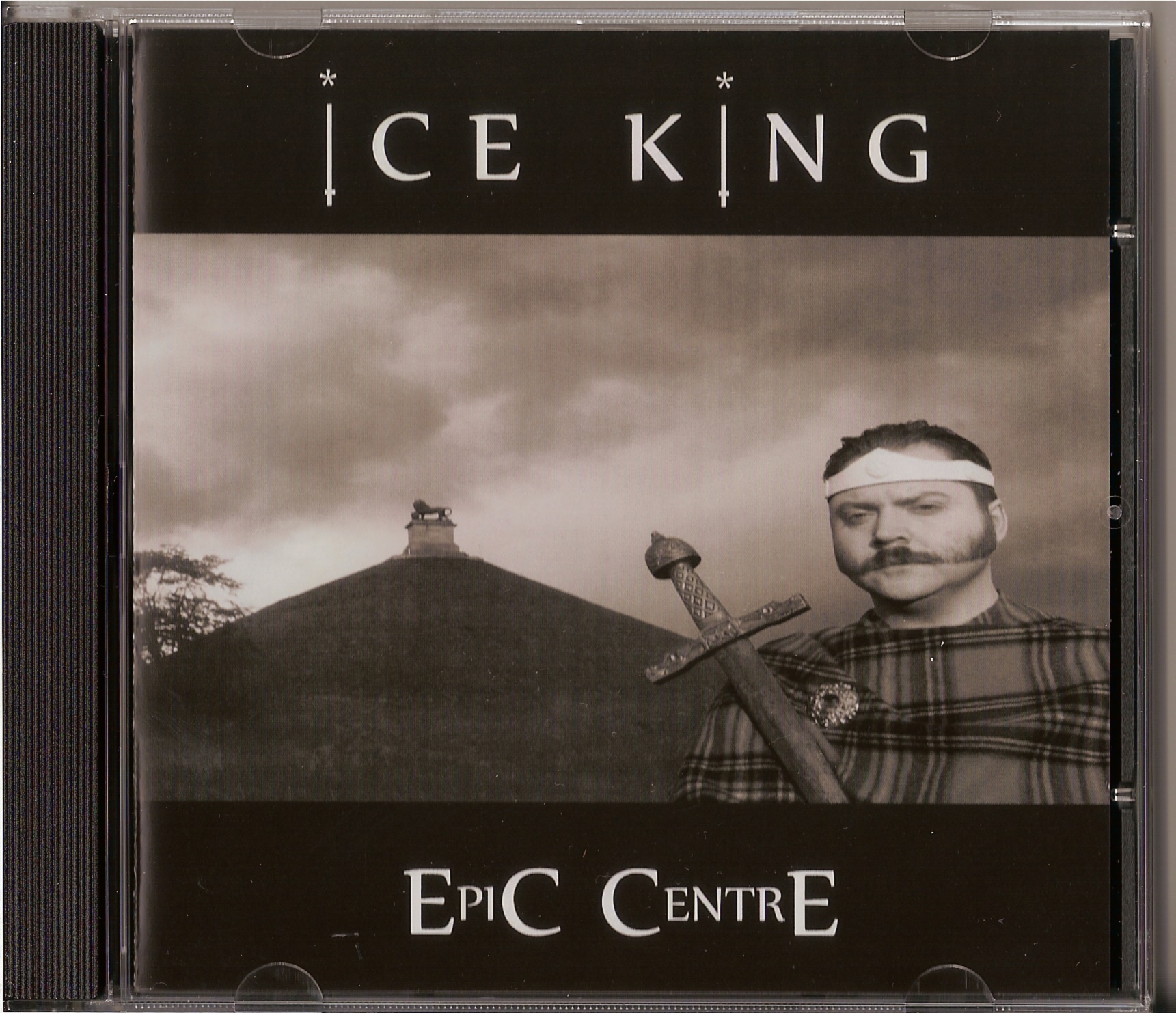EpiC CentrE
Third iCE KiNG album, released as Compact Disc in 2012, as well as digitally
All epics are being performed still, in a variety of ways



I. Lost and Found
Guitar and vocals composed by Bas L.G. Verdin
Verses included from "On a Roman Helmet" by William Henry Ogilvie (1869-1963)
II. 1103 B.C.
Guitar and vocals composed by Bas L.G. Verdin
Verses included from "The History of Britain" by John Milton (1608-1674)
III. Lord Lochinvar
Guitar and vocals composed by Bas L.G. Verdin
Verses included from "Lochinvar" by Sir Walter Scott (1771-1832)
(Other Scott epics with Ivanhoe on Splendid Iceolation and Sérénade Saxonne on Gallus X)
IV. Ockham's Razor
Guitar composed by Bas L.G. Verdin
(Later recording on TWiCE KiNG)
V. Toppen av Isberget
Guitar and vocals composed by Bas L.G. Verdin
Verses included (in Swedish) from "Du Gamla, Du Fria" by Richard Dybeck (1811-1877)
VI. Pirates of the Northern Seas
Guitar and vocals composed by Bas L.G. Verdin, including a small reference to César-Auguste Franck (1822-1890)
Verses included from "To the Hesitating Purchaser" and "Treasure Island" by Robert Louis Stevenson (1850-1894)
(Alternate version on Gallus X as Marszeyls)
VII. Blue, Red and Blood
Guitar and vocals composed by Bas L.G. Verdin
Verses included from "The Battle of Waterloo" by William Thomas Fitz-Gerald (1759-1829)
VIII. Sorrow of Love
Guitar and vocals composed by Bas L.G. Verdin
Verses included from "The Sorrow of Love" by William Butler Yeats (1865-1939)
IX. Blue, Red and Blood - Pars Altera
Guitars composed by Bas L.G. Verdin
(Blue, Red and Blood - Pars Altera Bis on Splendid Iceolation)

Booklet photograph by Death Bird Art at the Battlefield of Waterloo, Belgium
Simultaneous projections of paintings, live or online, respectively:
I. "The Course of Empire - Desolation" by Thomas Cole (1801-1848)
II. Illumination in "Book One" of the Historia Regum Britanniae (15th century)
IV. "Filosoof Met Een Open Boek" by Salomon de Koninck (1609-1656)
V. "The Icebergs" by Frederic Edwin Church (1826-1900)
VII. "La Bataille de Waterloo" by François Andrieux (1759-1833)

"Many have tried to define what I do, and all have failed in doing so, including myself.
This is only logical, since music in my eyes is precisely 'saying' what cannot be said otherwise, and more than what is being said otherwise. Our society now seems to deal only with things
that can be captured in kids' language, and things - music or not - petty and cheesy enough to not confront us with the
tragic and heroic human condition. If history could speak, if
my own music could speak, it would sound like an EpiC CentrE though, this working title being only the tip of the iceberg as a matter of course..."